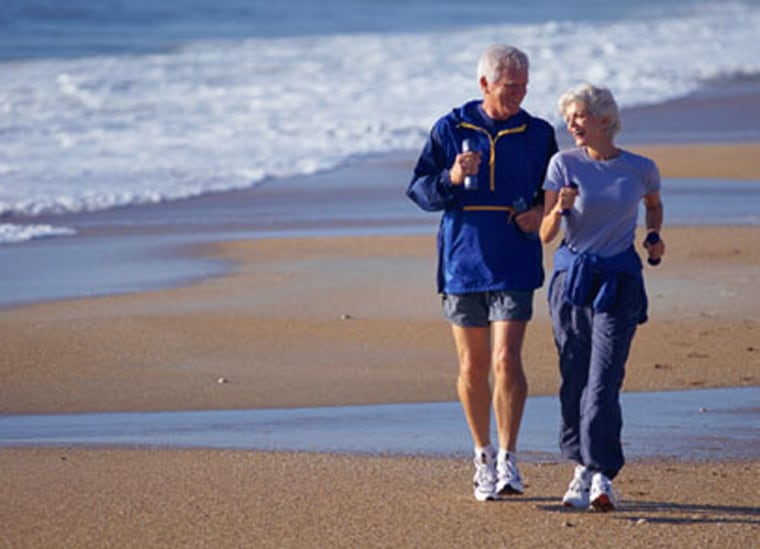If you think “it’s too late now” or “I can’t be that perfect” to adopt healthy habits to lower your risk of cancer, a new study has just poked a hole in those excuses. The study concluded that following steps advocated by health researchers, such as those at the American Institute for Cancer Risk, even moderately well, beginning in middle age, can make a difference.
Researchers looked at how the eating and lifestyle habits of women aged 55 to 69 were related to their health 12 years later. They evaluated habits based on how many of the AICR guidelines these women followed. Besides looking at tobacco use, researchers looked at whether the women: maintained a healthy weight; gained no more than 11 pounds after age 18; exercised daily; ate at least five servings of vegetables and fruits daily; got adequate complex carbohydrates; and limited alcohol, red meat, fat and salt.
Healthier choices may lower cancer risk
Out of more than 29,000 women, not a single one followed all of these recommendations. But about 10 percent of the women were nonsmokers who followed six to nine of the recommendations. After 12 years, those who followed only one or none of the recommendations were 35 percent more likely to develop cancer than those who followed six to nine of them. Statistical analysis estimates that if all the women in the study had followed six to nine recommendations, 22 percent of the cancers that occurred could have been avoided. If they had also avoided tobacco, 31 percent of the cancers might have been avoided.
Combining the results of this study with findings from past research tells us several things about cancer prevention. We see that we can lower our risk even if we can’t follow all the recommendations perfectly.
On the other hand, taking just a couple of easy steps is probably not enough. Scientists believe that eating and lifestyle habits work together to increase or decrease cancer risk, so it makes sense that putting just a couple pieces of the puzzle in place is not enough.
Weight, exercise strongly linked to cancer
Amidst the growing problem of overweight today, it’s troubling to see that weight and exercise had so much influence on cancer risk. In this study, following all the healthy eating recommendations would only lower cancer incidence about seven percent if women were overweight and inactive. An earlier study in the same group of subjects also found that healthy eating brought a similarly small drop in cancer incidence if weight and exercise habits were not good. Weight and exercise may have been particularly important in these studies because they are so strongly linked to postmenopausal breast cancer, a major portion of the cancer in this group of postmenopausal women.
It’s important to note that other studies also do not support the idea that eating habits don’t matter as long as your weight is good. An earlier study linked greater consumption of various healthful foods with fewer cancers and overall deaths.
Even in the group following six to nine recommendations, only a third of the women met the guideline to eat at least five servings of vegetables and fruits daily. As scientists learn more about the many cancer-fighting substances these foods contain, it suggests that if more of us could follow that recommendation, we might have greater success in lowering our cancer risk.
